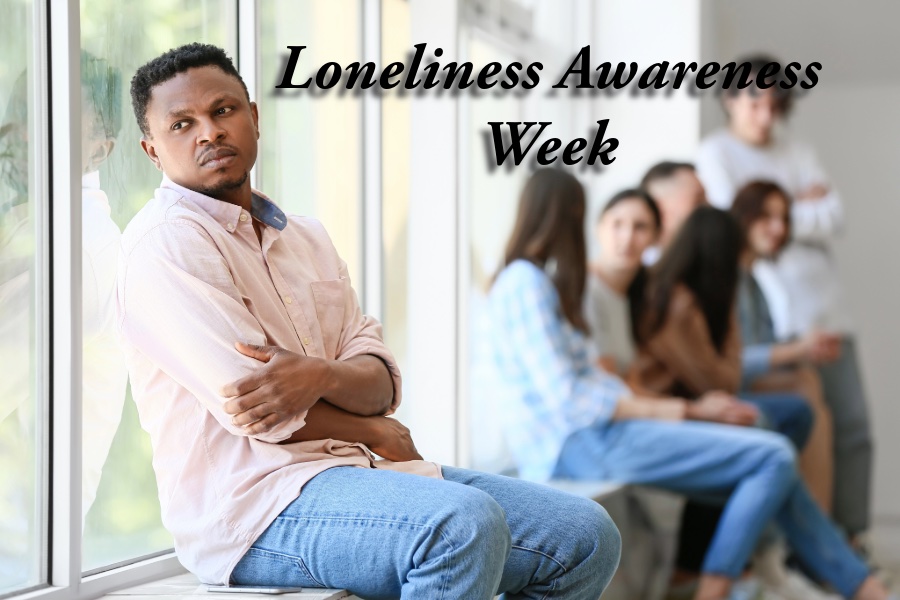Understanding Loneliness Awareness Week
Loneliness Awareness Week, scheduled for the 17th to 23rd of June, is a crucial time for reflection and action within workplaces across the globe. This campaign, initiated to highlight the prevalence and impact of loneliness, is an opportunity for organisations to address and mitigate the factors contributing to loneliness among their workforce.
The Significance of Addressing Loneliness
Loneliness is more than an emotional experience; it is a condition that can affect one’s physical and mental health significantly. Research has demonstrated that prolonged feelings of loneliness can lead to an increased risk of certain mental health issues, such as depression, anxiety, and decreased self-esteem. On the physical side, it is associated with a heightened risk of cardiovascular diseases, stroke, and even premature mortality. Given these impacts, it is clear why raising awareness and combating loneliness is imperative.
The Role of Organisations During Loneliness Awareness Week
During Loneliness Awareness Week, organisations have a unique platform to initiate programs and strategies aimed at reducing loneliness. Here are several ways businesses can actively participate:
- Host Workshops and Seminars: Organise events that educate employees about the signs of loneliness, its effects, and strategies for fostering meaningful connections at work.
- Promote Open Conversations: Encourage a culture where feelings of loneliness can be shared and discussed openly without stigma. This can be facilitated through team meetings or dedicated support groups.
- Implement Team-Building Activities: Arrange activities that not only aim to build team spirit but also promote interpersonal relationships among employees.
- Enhance Support Systems: Strengthen internal support systems such as mentoring programs and ensure that mental health resources are easily accessible to all employees.
- Flexible Working Arrangements: Offer flexible work options that can help employees maintain a healthy work-life balance, which is often a factor in alleviating feelings of isolation.
Health Implications of Loneliness
Understanding the deep-seated impact of loneliness on health is essential. Loneliness is not just a cause of mental distress; it can also exacerbate physical ailments and lead to long-term wellness issues. It is associated with increased levels of stress hormones and inflammation, which in turn can affect the body in myriad ways, reducing overall life expectancy.
Additional Resources for Further Reading
To broaden understanding and equip your organisation with more extensive knowledge on addressing loneliness, the following resources are invaluable:
- Mental Health Foundation offers insights on the connection between loneliness and mental health: Mental Health Foundation
- Mind, the mental health charity, provides tips and strategies for individuals and workplaces to tackle loneliness: Mind.org.uk
- Campaign to End Loneliness shares research and resources that help understand and combat loneliness: Campaign to End Loneliness
- NHS offers advice and support options for those feeling lonely: NHS Choices – Loneliness
Workplace Wellbeing Professional & Loneliness
To read content from wellbeing professionals, or news stories relating to workplace loneliness, follow the links below (with plenty more to be found under ‘loneliness’ in the Topic Index):
- Nebel Crowhurst: The disconnection dilemma – how can leaders combat loneliness at work?
- Workplace isolation and loneliness rising – call to action for employers
- William Sipling: Remote work and the public health crisis of loneliness
- Are your employees struggling with loneliness?
Conclusion
Loneliness Awareness Week is more than just a campaign; it is a pivotal moment for workplaces to actively engage in the well-being of their staff. By educating, supporting, and connecting employees, organisations can cultivate a healthier, more inclusive workplace environment. Let this week be the start of ongoing efforts to address and mitigate loneliness within your workforce, creating a robust foundation for both individual and organisational success.
Joanne is the editor for Workplace Wellbeing Professional and has a keen interest in promoting the safety and wellbeing of the global workforce. After earning a bachelor's degree in English literature and media studies, she taught English in China and Vietnam for two years. Before joining Work Well Pro, Joanne worked as a marketing coordinator for luxury property, where her responsibilities included blog writing, photography, and video creation.



